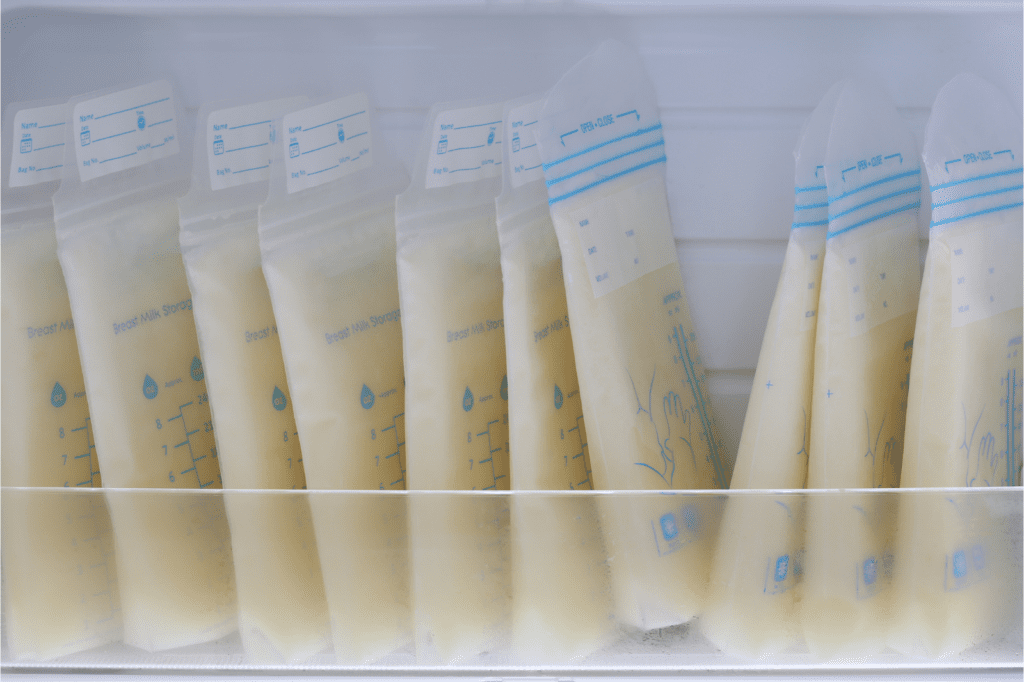Breastfeeding is an amazing and indescribable bonding experience for both mother and baby. But without prior knowledge or the right guidance, this special experience can easily be a trigger point for stress and anxiety. The first week with your new-born can be undoubtedly life-changing and it does take a bit of know-how, so you may have lots of questions.
Don’t worry! Parkway East Hospital’s Lactation Consultant Eileen Chua-Tiang shares some essential tips to help new mummies kickstart this most magical of experiences. It may be common knowledge that breastfeeding, and breast milk, has many benefits as a living substance that adapts to your baby’s needs.
Call it a mother’s gift, if you will, because breastmilk provides all the proteins, carbohydrates, enzymes needed for development. It even evolves over time, adapting to baby’s growing needs at different development stages not just nourishing, but jumpstarting baby’s immune system by delivering essential antibodies to help fight illnesses.
Discover more with these answers to commonly asked questions!
1. How will I know how much breast milk my child is getting?

We can weigh baby before and after breastfeeding to determine the intake per feed. However, we should not be actively measuring how much breast milk a baby is getting. A baby is getting enough when there is an adequate number of wet diapers each day.
By a general rule of thumb, a day-old baby will have one wet diaper, while a 4-day old baby should have at least 4 wet diapers. This continues till about a week old, where they will average at least 5-6 wet diapers each day.
Mum should also check that her breasts soften after breastfeeding. Her baby should also be active and happy after each feed, with steady weight gain of between 150-200 grams per week for the first few months.
2. How does breast size affect the amount of milk and my ability to breastfeed?

Breast size and shape do not equate to successful breastfeeding. Most women are able to produce enough milk for their babies regardless of what size their breasts are. You may find that your breasts will likely grow bigger before, and during, your breastfeeding journey, so breast size is irrelevant when it comes to how much milk you produce.
3. Can I breastfeed immediately after receiving the COVID-19 vaccine?

Yes! The Ministry of Health (MOH) advisory on COVID-19 mRNA vaccines for breastfeeding mothers state that the vaccines are safe and there is no need to interrupt breastfeeding. It is because mRNA vaccines are not live vaccines, so they are biologically unlikely to adversely affect breastfed babies. Moreover, the antibodies in the breast milk of vaccinated mothers may help to protect their babies from COVID-19.
4. Is it normal to only have a small amount of colostrum (the first milk)?

Yes, it is perfectly normal. Sometimes you can’t even see it till day 2 – 3. As long as your breasts showed changes during pregnancy, such as a change in size and development, your colostrum is on its way. What you need to do is to let baby nurse on you day and night, that’s how your baby help you to bring forth your first milk and supply thereafter. Colostrum is not measured by quantity but by quality. It contains antibodies and white blood cells which gives your baby’s first natural immunisation.
5. Will I have enough milk for my baby?
What’s most important, is enjoying breastfeeding instead of being fixated about your supply. When you are just providing, be it through a direct latch and/or pumping, it is a joy to be giving whatever you have to your child. To see them having your milk in whatever amount is one of the biggest joys of motherhood. And being happy is a precursor to producing more milk! When you are happy, you will be able to meet your baby’s usual demands of 8 – 12 feeds per day.
6. Is breastfeeding painful?
Latching should be painless. If you do experience some pain, it could be due to improper latch, positioning and hold. Seeing a lactation consultant can help correct this and ease the discomfort. Breast engorgement pain is real. Nevertheless, it is usually temporary, and it should resolve on its own with adequate ‘emptying’ after each feed.
Our lactation consultants also discourage premature pumping which is pumping in the early days of baby’s life. This is because breast milk is not flowing well yet, so pumping may cause engorgement to become worse. Using cold compresses on the breasts, and ensuring that the breasts soften after each feed during engorgement works very well to resolve this issue.
7. How long should I breastfeed for?

The World Health Organisation (WHO) recommends exclusively breastfeeding for 6 months and encourage continuing to do so through toddlerhood, or as long as mother and child desire. Breastmilk is an important source of energy, protein and reduce your child’s risk of infection – the more mother’s milk your child gets, the better. Breastfeeding is part of a parenting factor which is associated with your child emotional development – the attachment between both mother and child.
8. Any benefits for me?

A whole lot of benefits awaits you. Studies* have shown that exclusive breastfeeding mothers has reduced risk of breast cancer, ovarian cancer, osteoporosis and heart disease. Breastfeeding helps to contract your womb and reduces blood loss, especially necessary in the period right after childbirth.
Set your breastfeeding goals now!
Breastfeeding can be a blissful and rewarding experience. It’s common for mothers to feel some anxiety or worry and have tons of questions when it comes to nursing their babies. Learn more about how to eat right when breastfeeding.
*References:
https://www.webmd.com/baby/breastfeeding-vs-formula-feeding#1
http://www.aicr.org/research/the-continuous-update-project/breast-cancer/






